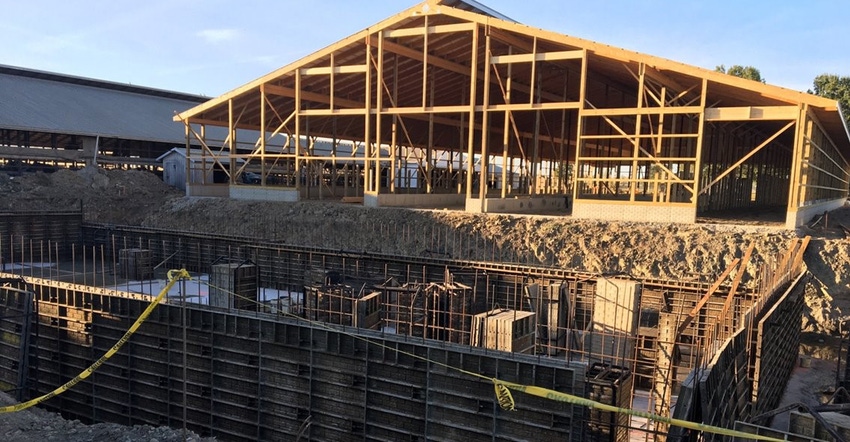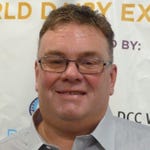October 28, 2021

When members of the Steiner family sat down with a financial planner and an attorney to develop a succession plan in 2002, they had no idea how valuable that document would be in keeping their dairy operation moving forward.
Although family members worked well together and were agreeable on the day-to-day operation of the farm, they decided it would be a good idea to put a succession plan in place that would clearly spell out how the farm would transition from one generation to the next. Unfortunately, that plan has come into play twice in the past 19 years due to unexpected deaths in the family.
Important to plan

“It��’s tough to plod through — it’s not fun,” he said during a virtual farm tour at World Dairy Expo in Madison, Wis. “But you’re not going to be here forever, and you’d better have it together when it comes to succession planning.”
Steiner Dairy has been in the same family for seven generations, and has been at its current location near Creston, Ohio, since 1959. The family owns 700 acres, rents 400 more, and milks 650 cows three times a day. The dairy has a rolling herd average of 30,595 pounds of milk with a 3.9% butterfat test and 3% protein.
Kurt joined the operation in 1994 and began working with his uncle and father. He and his brother, Eric, became partners in the operation in the early 2000s and helped oversee an expansion from 140 cows to today’s 650. The operation supports nine employees.
The succession plan developed in 2002 addressed such issues as how long a family member had to work in the operation before becoming a partner, ownership percentages and buyout at death.
Things were running smoothly on the farm until Feb. 1, 2009, when Kurt and Eric’s father, David, died of a heart attack.
“My dad didn’t like anything to do with the business side of things; he just liked to work,” Kurt recalled. “He was a good, good man. He didn’t cause friction for the next generation and was very receptive to what Eric and I wanted to do.”
With their father’s passing, Kurt and Eric became majority owners in the farm. Health issues eventually led their uncle to scale back his involvement and become a silent partner.
The brothers tore down old dairy facilities and built a new barn to modernize their milking operation. About four years ago, they expanded their team of experts to include not only their nutritionist and veterinarian but also a financial consultant to help them better manage their budget.
“We really didn’t have a clue what our cost of production was before we changed our business approach,” Kurt said. “You know at the end of the month if there is money or not, but we didn’t know our repair costs, parlor expenses and so forth.
“[The budget] has really been a big asset to our dairy. We have also put in place an insurance program to basically protect ourselves on the bottom end with the milk price. I know I’m sleeping a whole lot better.”
More tragedy
In August of this year, things changed again, when Eric, suffering from prostate cancer, died suddenly.
“When you farm with someone for 15 years like Eric and I did, it can hurt,” Kurt said, with a quiver in his voice. “Eric was like my dad — he was a worker. He will really be missed.”
Despite the shock of Eric’s death, Kurt said the farming operation will continue. His son, Christian, is taking on a larger role in the operation, and Kurt is doing more of the animal feeding.
“There’s hope for our dairy,” he said. “We don’t know exactly how, but we’re going to get it done.”
Kurt said it is encouraging to see Christian take an interest in the farming operation as the eighth generation of the Steiner family.
“There is no better joy to me than when I see my son come onto the dairy and say he wants to someday take this over,” he said.
Kurt said he has kept good employees by showing he trusts them and creating a positive environment on the farm.
“I’m one of these guys who believes that people have talent — you just have to find out what they’re good at,” he said. “I also want to have the kind of personality where if an employee has a problem or does something wrong, he can feel comfortable coming to me and telling me about it. If you fly off the handle every time a guy hits a gate with a skid steer, you’re not going to have a work crew.”
Working with a team of advisers has helped Kurt learn his strengths and weaknesses and develop a work plan accordingly.
“I can’t fix anything and I’m not afraid to admit it. That’s not my strength,” he said. “Because we’re not equipment guys, maybe it’s not in our best interest to have a lot of equipment. We hire custom-harvest guys and are very happy with how that all works out.”
Kurt said among his strengths is being a good family man, a good cow man, and trying to set a good example.
“I think I’m a pretty good dad, and I don’t say that lightly,” he said. “I’m not in this business to kill myself and to work 18 hours a day. I’m on this Earth to get to heaven, and I’m going to try to lead that lifestyle.”
Massey lives in Barneveld, Wis.
You May Also Like




